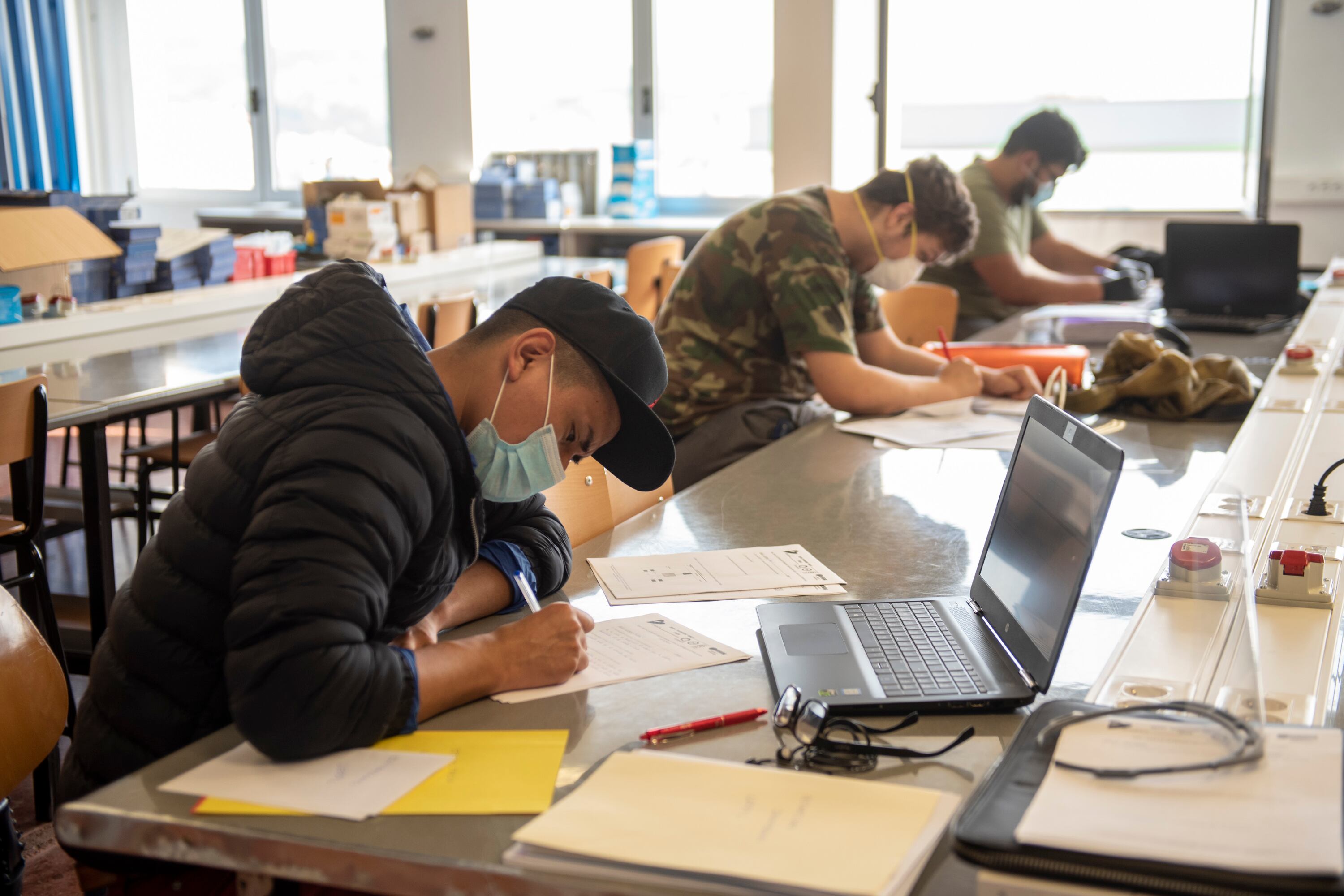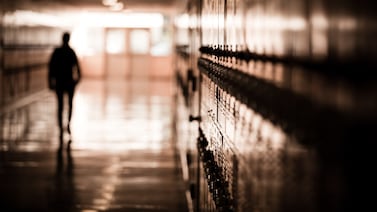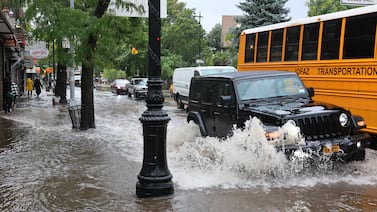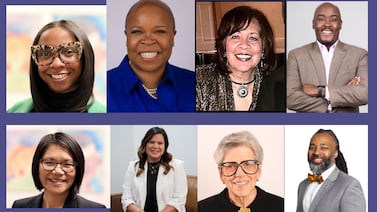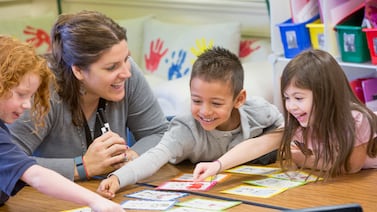Face masks, temperature checks, and social distancing will be mandatory in Newark schools this fall, officials said as they begin sharing plans for reopening schools amid the ongoing coronavirus pandemic.
In addition, students might have to eat lunch in their classrooms and forgo outdoor recess and gym, according to surveys sent to families, staffers, and students that list safety precautions the district is considering. Schools may need to combine in-person and virtual learning, and students could come to class in shifts or on separate days in order to reduce the risk of infection, according to the surveys.
The district is still weighing its options and awaiting reopening guidelines from the state. It’s also considering how to catch up students who fell behind during months of remote learning, all while anticipating state funding cuts.
Meanwhile, the district is at the mercy of factors beyond its control, including the availability of virus tests and the willingness of families to send their children back to classrooms and school employees to return to work despite the lack of a vaccine for the potentially fatal virus.
“We want everyone to come back with as clear a mind as possible,” Superintendent Roger León said Tuesday during a virtual event with the mayor, “because we have a lot of work to do.”
While the district is still developing its reopening plans, they will definitely include four practices based on guidance from the federal Centers for Disease Control and Prevention, León said. The practices: screen everyone who enters school buildings for coronavirus symptoms, including fevers; ensure that students and staffers wear face coverings, especially when in close proximity; promote hand hygiene by providing soap and sanitizer; and maintain a physical distance between people in order to curb the spread of the virus.
Even those relatively straightforward practices could pose major challenges.
“If masks are required, can districts obtain the hundreds of thousands needed by students every day?” a superintendent was quoted as asking in a recent report by the New Jersey School Boards Association. “If students wear inferior, homemade masks, and the virus spreads, will districts be held liable for any deaths?”
The most vexing logistical questions revolve around how to maintain the recommended 6 feet of space between people inside school buildings. To that end, the district is considering “one-way movement” in hallways, “modified or no outdoor recess” or gym, and having students eat in classrooms instead of cafeterias, according to the district surveys.
Students may also need to attend school in shifts or alternate between days of in-person and online learning in order to allow social distancing in classrooms, the surveys suggest. Wilhelmina Holder, a parent advocate who is on the district’s school-reopening task force, said only 10 to 12 students will be allowed in classrooms so that they can keep a safe distance apart.
“For years I wanted smaller class sizes,” she said. “Now here comes a pandemic that’s going to force us to do it — go figure.”
Another issue the district must consider is that some people may be reluctant to return to school buildings even with safety precautions in place. Growing evidence suggests that children can transmit the coronavirus even though they are less likely to develop serious symptoms, which is likely to concern families with medically vulnerable members who could contract the virus from school-age children. Then there are older teachers and those with health conditions, such as diabetes or heart disease, that make them especially susceptible to complications from the virus.
“They might be more reluctant” to come back to school, said Newark Teachers Union President John Abeigon in an interview last month. Older or medically vulnerable teachers “might make good candidates for virtual teaching” in the fall, added Abeigon, who is also on the reopening task force.
Some online learning is likely in the fall considering that certain students may be unable or unwilling to return to classrooms, schools must limit class sizes, and another outbreak of the virus is possible. And online learning means students need home computers.
While the district has loaned out roughly 11,000 Chromebook laptops since school buildings closed in March, 4,000 of those laptops now need to be replaced, León told the school board Saturday. And in order for the district to provide a laptop to every student, it would need to purchase 10,000 additional devices, León said. That many Chromebooks would cost an estimated $3.5 million.
“Our ultimate goal is to have every child with a Chromebook,” León said.
A final major consideration is how to meet the needs of students who regressed academically during remote learning. Some students had trouble getting online or their parents had to work or deal with illness and could not closely monitor their learning.
The district will assess students’ skill levels in September and create improvement plans for anyone who is behind, according to the district’s school closure plans. Beginning July 6, the district will offer summer school programs, most of which are likely to be online. And the district will provide e-books for every student along with assignments to complete over the summer.
Holder, the parent advocate, said she believes every student should attend summer school.
“If you ask me, all of the kids should be going to summer school virtually,” she said, “because there has been a significant loss in learning.”


